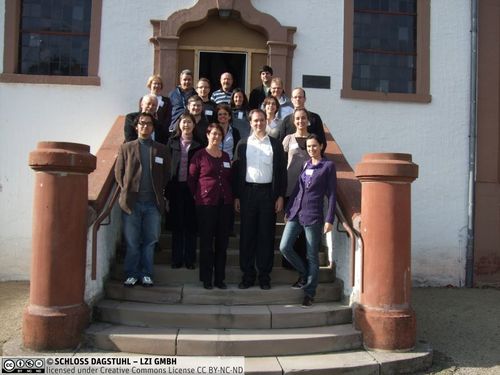Dagstuhl-Seminar 09432
Quantitative Software Design
( 20. Oct – 23. Oct, 2009 )
Permalink
Organisatoren
- Astrid Kreissig (IBM Deutschland - Böblingen, DE)
- Iman Poernomo (King's College London, GB)
- Ralf H. Reussner (KIT - Karlsruher Institut für Technologie, DE)
Kontakt
Quantitative software design is a research area not yet firmly established. Its subject is the investigation of the relationship of the design of a software system on quantitatively measurable quality attributes. Such quality attributes include internal quality attributes (such as maintainability), but also externally measurable attributes (such as performance metrics, reliability or availability). While there is no debate on the fact that the software design (mainly its architecture) is the main influencing factor on the quality of the resulting software system, an understanding of how an architecture’s influence on the quality is currently primarily anecdotal. Much progress was made on recent years in the area of model-based and model-driven quality prediction for various performance metrics. However, several important scientific questions remain unanswered: trade-off decisions between antagonistic quality attributes quantitative metrics for relevant quality attributes such as security software design as an optimisation problem lifting classical maintainability metrics to the architectural level.
The aim of the seminar is to bring together world-class researchers from relevant areas to establish the field of quantitative software design. Invitees will therefore be experts in areas such as software architecture, component-based software engineering, model-based software quality prediction, machine learning, software performance, software reliability, software maintainability and security. The expected result of the seminar will be partial answers on the scientific questions posed above formation of the scientific field of „quantitative software design“ identification of major challenges in the field identification of achievements of other fields which can be used in ours a collection of written position statements on this field a post-seminar report by the organisers which collects major results of the discussion. It is planned to publish this report prominently.
Comparable to the influence of the well-known textbook from John L. Hennessy and David A. Patterson “Computer Architecture. A Quantitative Approach”, we assume that a quantitative view on software design is a considerable step in making software design a true engineering discipline.
- Assel Akzhalova (King's College London, GB)
- Steffen Becker (FZI - Karlsruhe, DE) [dblp]
- Barbora Bühnová (Zimmerová) (Masaryk University - Brno, CZ) [dblp]
- Eitan Farchi (IBM - Haifa, IL)
- Carlo Ghezzi (Polytechnic University of Milan, IT) [dblp]
- Matthias Grund (andrena objects ag, DE) [dblp]
- Jens Happe (FZI - Karlsruhe, DE)
- Christine Hofmeister (East Stroudsburg University, US) [dblp]
- Lucia Kapová Happe (KIT - Karlsruher Institut für Technologie, DE) [dblp]
- Heiko Koziolek (ABB AG Forschungszentrum Deutschland - Ladenburg, DE) [dblp]
- Astrid Kreissig (IBM Deutschland - Böblingen, DE)
- Anne Martens (KIT - Karlsruher Institut für Technologie, DE)
- Florian Matthes (TU München, DE) [dblp]
- Raffaela Mirandola (Polytechnic University of Milan, IT) [dblp]
- Frantisek Plasil (Charles University - Prague, CZ)
- Iman Poernomo (King's College London, GB)
- Ralf H. Reussner (KIT - Karlsruher Institut für Technologie, DE) [dblp]
- Judith A. Stafford (Tufts University - Medford, US)
- Johannes Stammel (FZI - Karlsruhe, DE)
- Catia Trubiani (University of L'Aquila, IT) [dblp]
Klassifikation
- sw-engineering
Schlagworte
- software design
- software architecture
- software components
- quality of service
- software


